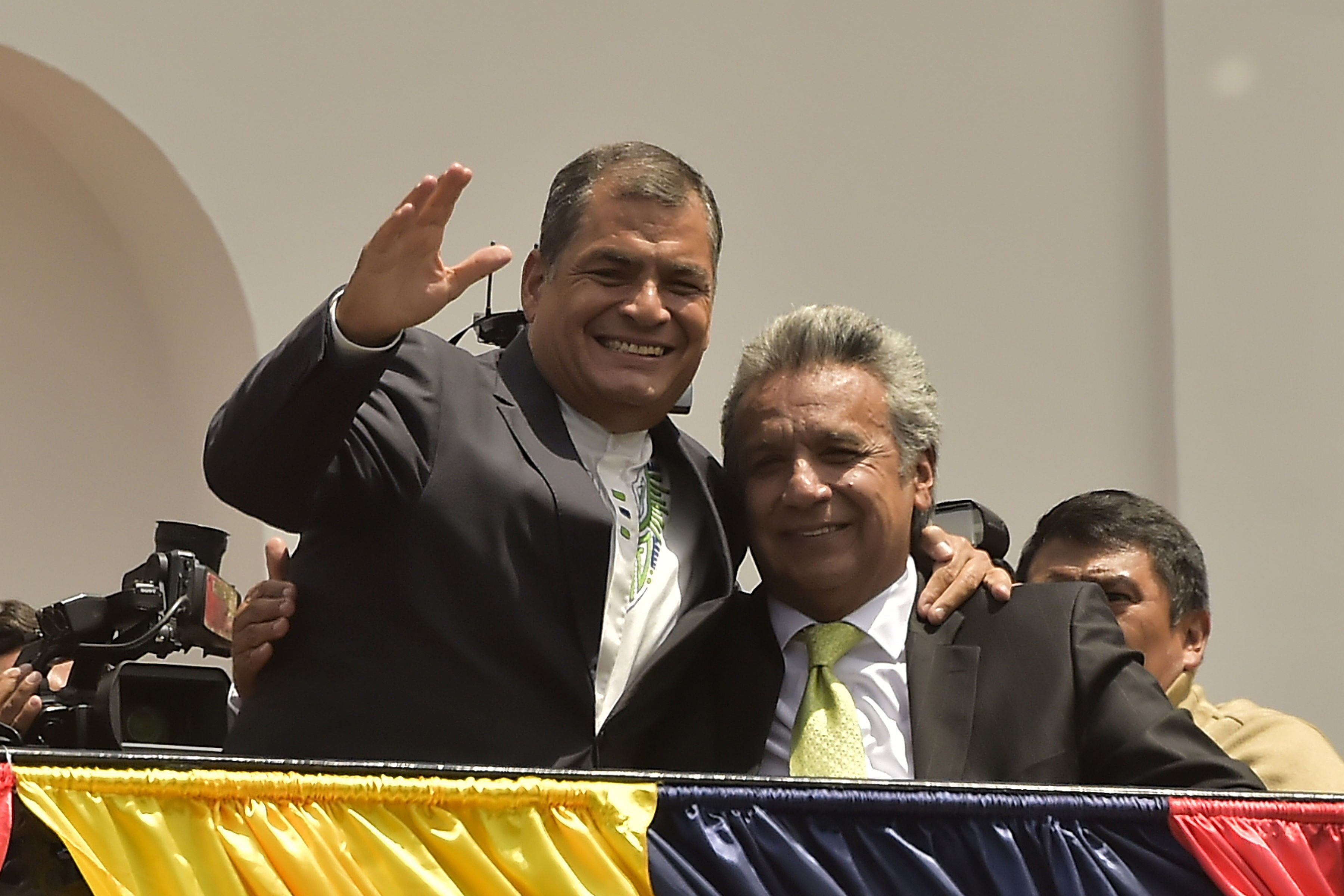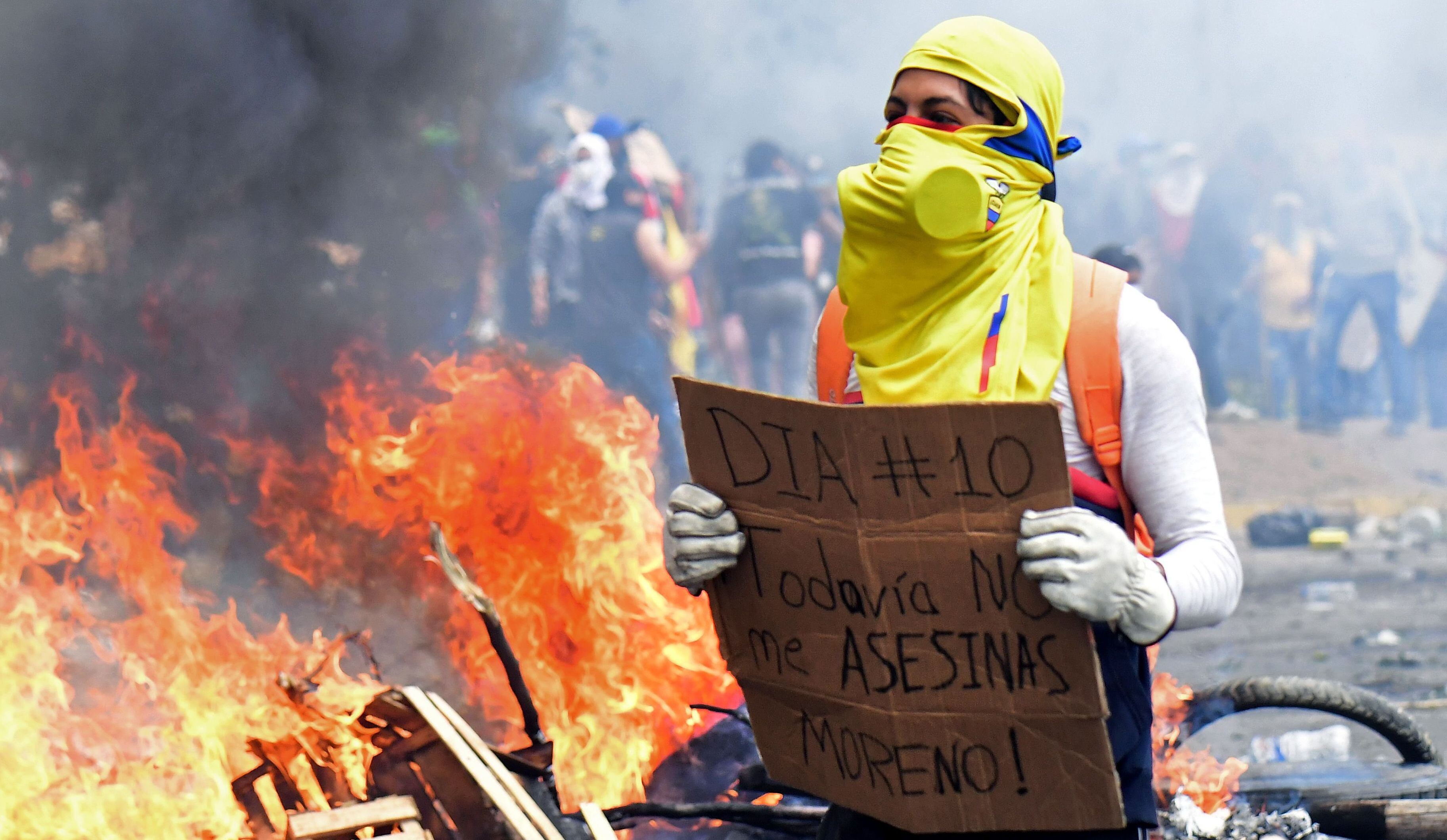Ecuador, who on Sunday will elect its president from the leftist Andres Arauz and the rightist Guillermo Lasso, exports oil, bananas and shrimp. Currently, it is going through an economic crisis worsened by the covid-19 pandemic.
This South American nation, whose territory stretches from the Pacific to the Amazon and has 17.4 million inhabitants, gave WikiLeaks founder Julian Assange asylum in its embassy in London for seven years.
1.Political instability
Ecuador, which was part of the Inca empire, was ruled by Spain until 1822, when it became part of Gran Colombia, under the liberator Simón Bolívar.
Independent since 1830, he went through almost a decade of military regimes until 1979, when Jaime Roldós was elected at the polls, who died in a plane crash in 1981.
Since that return to democracy, its institutional life was unstable between 1997 and 2006, a period in which it had seven leaders, three of them emerged from the polls and were overthrown in protests.
2.Socialists in power
The 2006 election of Rafael Correa as president brought a decade of relative calm. He was reelected in 2009 -after the adoption of a new Socialist Constitution, which strengthened state control over the economy- and in 2013.
In 2012, Correa angered the United States by granting Assange asylum at the Ecuadorian embassy in London.
He was replaced in 2017 by his former vice president, Lenín Moreno, with whom he maintains a power struggle that weakened the ruling party.

When everything was happiness, Rafael Correa and Lenín Moreno embrace after the electoral victory of 2017. His vice president became his successor, and then his rival.
3.Correa Vs. Moreno
Moreno and Correa faced each other in 2018 at the polls, when the president held a popular consultation that eliminated the indefinite reelection of authorities, thus preventing the return of the former president, who promoted the “No”.
In July 2019, Moreno removed Assange’s asylum and British police arrested him at the legation.
Correa, who has lived in Belgium since leaving office, was sentenced in 2020 to eight years in prison for corruption, dashing his hopes of running for the vice presidency in 2021. The former president considers himself a politically persecuted person.

Profiles of Andrés Arauz and Guillermo Lasso.
4.Less oil income
Ecuador is one of the hardest hit in Latin America by covid-19, which aggravated its economic problems due to the low price of crude oil and the drop in sales of other products.
In 2020 its economy fell 7.8% and for this year a growth of up to 3.5% is expected.
It is the world’s largest exporter of bananas, as well as an important producer of cocoa and flowers. Last year it exploited some 479,000 barrels a day of oil, of which it sold 75%.
While prices were high, at nearly $ 100 a barrel between 2011 and 2014, crude oil fueled Ecuador’s growth.
With its dollarized economy since 2000, the rise in the US currency makes Ecuador more expensive, which left the Organization of the Petroleum Exporting Countries (OPEC) last year.

In December 20219 the Ecuadorians came out to protest against the regime of Lenín Moreno.
5.Deadly protests
The removal of fuel subsidies in October 2019, as part of an agreement with the IMF, led to violent protests led by indigenous people, including the closure of oil wells.
The riots, which left 11 dead and more than 1,300 injured, according to the Inter-American Commission on Human Rights (IACHR), forced the government to back down.
The IMF approved a loan of 6.5 billion dollars last September, after the government agreed with some creditors to restructure 17.4 billion dollars of its external debt.
6.Volcanoes and jungle
With an area of 256,370 km2, Ecuador borders Colombia to the north, Peru to the south and east, and the Pacific extends to the west. Part of its territory is the Galapagos Islands, 1,000 km from the coast and declared a World Heritage Site by UNESCO.
It is located in an area of high seismic activity, with about 100 volcanoes spread throughout its Andes mountain range.
The capital, Quito, with 2.8 million inhabitants, is located on the slopes of the Pichincha volcano.
In 2016, a 7.8 magnitude earthquake killed 673 people and devastated coastal areas.
The Amazon rainforest covers almost half of Ecuador and is home to indigenous peoples threatened by the exploitation of natural resources.
7.Cradle of the theory of evolution
The naturalist Charles Darwin developed his theory of evolution after studying finches in the Galapagos archipelago in 1835, which takes its name from the gigantic endemic tortoises that live there.
One of the smallest islands, which has unique flora and fauna in the world, is named after the English scientist.

:quality(75)/cloudfront-us-east-1.images.arcpublishing.com/elcomercio/M5SK7UZUPZGILDOAGQQX3ETC7U.jpg)